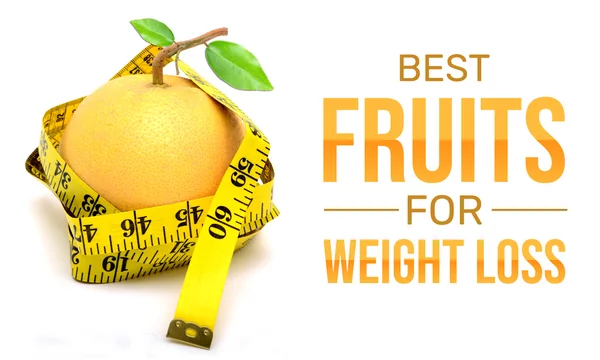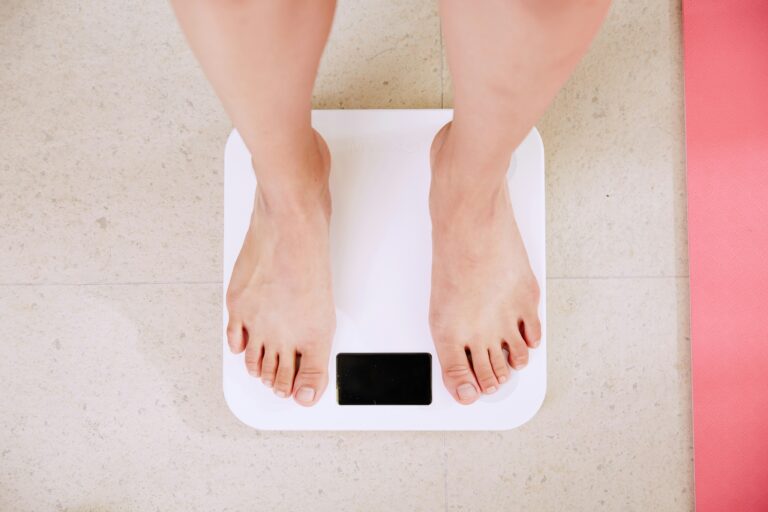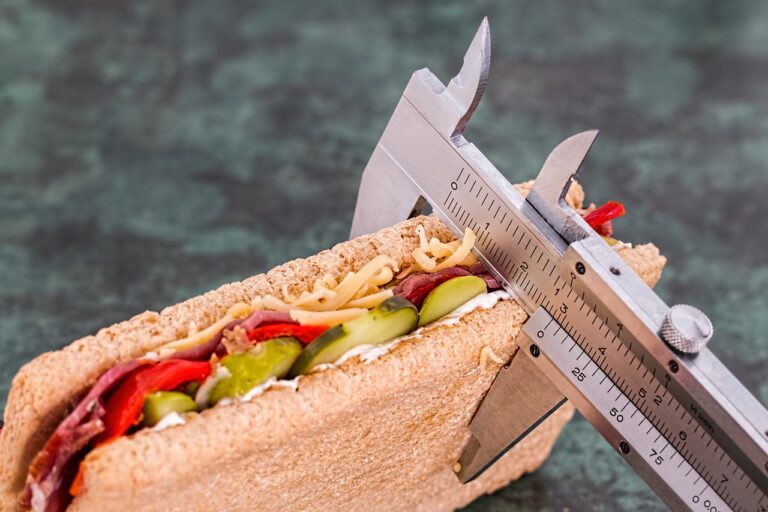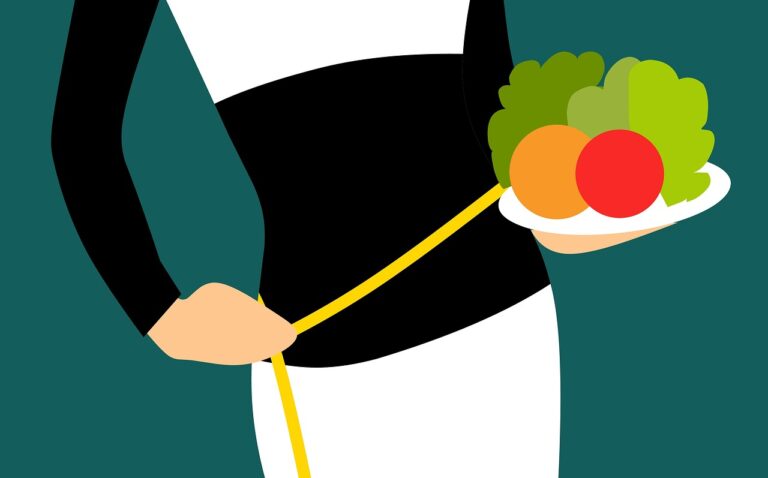Achieving sustainable and healthy weight loss requires a holistic approach that combines a well-balanced diet, regular physical activity, and lifestyle modifications. Although, net rate of obesity is rising worldwide due to transition in eating habit, increased availability junk food and a sedentary lifestyle, women tend to gain more weight than men. Furthermore, weight loss process is harder for females than males due to their slower metabolic rate. Finding a healthy weight loss plan that both helps women lose weight and provides them with the superior nutrition their bodies require can be difficult. Women’s nutrition differs from men’s, after all. In comparison to men, women also gain weight in different ways and on different parts of their bodies.
When designing a diet plan to lose weight, women’s bodies—particularly their hormones—need to be carefully taken into account because of how sensitive they are to food. This article is an aid for key ideas in planning diet plan for weight loss for females.
Best Foods for Weight Loss
Weight loss depends on the intake of total calories, however, choice of foods play an important role. Choosing the right foods is a crucial aspect of any weight loss plan, and incorporating nutrient-dense options can significantly boost your efforts. Our body needs different nutrients to carry out its physiological functions normally. Therefore, some foods that must be a part of the weight loss diet include:
Leafy Greens: The Green Powerhouse
Leafy greens such as spinach, kale, and mustard leaves are low in calories and high in essential nutrients. Packed with vitamins, minerals, and antioxidants, these greens not only support weight loss but also contribute to overall well-being. The fiber content aids digestion, while the abundance of vitamins promotes a strong immune system.
Lean Proteins: Building Blocks for Weight Loss
Incorporating lean protein sources such as chicken breast, fish, tofu, and legumes into your diet is crucial for weight loss. Protein not only helps in building and repairing tissues but also promotes a feeling of fullness, reducing overall calorie intake. Additionally, the energy expended during the digestion of protein is higher compared to fats and carbohydrates, making it a key player in weight management.
Whole Grains: Fueling Your Weight Loss Journey
Opt for whole grains such as quinoa, brown rice, and oats to provide your body with sustained energy and essential nutrients. The fiber in whole grains promotes satiety, preventing overeating, and stabilizing blood sugar levels. These complex carbohydrates are an excellent choice for maintaining a balanced and fulfilling diet while pursuing weight loss goals.
Healthy Fats: The Good Fat Equation
Contrary to popular belief, incorporating healthy fats into your diet can aid in weight loss. Avocados, nuts, seeds, and olive oil are rich in monounsaturated fats that promote heart health and keep you feeling satisfied. Including moderate amounts of healthy fats can help control cravings and support overall metabolic function.
Fruits: Nature’s Sweet Treats
While some fruits are higher in natural sugars, they can still be a part of a weight loss-focused diet. Berries, apples, and grapefruit are excellent choices due to their high fiber content and relatively low calorie count. Moreover, the vitamins and antioxidants found in fruits contribute to overall health and can satisfy your sweet tooth without derailing your weight loss efforts.
Greek Yogurt: A Protein-Packed Snack
Greek yogurt is not only delicious but also an excellent source of protein. The protein content helps maintain muscle mass during weight loss, and the probiotics contribute to a healthy gut microbiome. Opt for plain, unsweetened Greek yogurt to avoid added sugars and enjoy it as a satisfying snack or breakfast option.

Weight Loss Drinks
Green tea, herbal teas, detoxifying drinks, as well as low calorie smoothies are important weight loss drinks. Each diet plan for weight loss for female must focus on the hydration aspects as women tend to consume less water generally. Green tea, renowned for its fat-burning properties, leads the pack, helping you shed those extra pounds while providing a healthy dose of antioxidants. On the other hand, refreshing herbal teas, such as peppermint and ginger, are known for their digestion-enhancing and appetite-suppressing qualities.
Moreover, quench your thirst in weight loss diet plan with detoxifying drinks like lemon water, infused with natural detox agents to cleanse your system and kickstart your metabolism. In addition, don’t forget the power of nutrient-packed smoothies, blending together ingredients like spinach, berries, and Greek yogurt for a delicious and satisfying weight loss treat.
Fruits in Weight Loss: A satisfaction for sweet cravings!
In terms of diet, adding fruits to your meals can help with natural and healthy weight loss in a tasty and efficient way. Citrus fruits, such as lemons and grapefruits, are low in calories and can help control blood sugar levels. Some of the best fruits for weight loss are high in fibre and antioxidants, hence, they can help increase metabolism. However, moderation is the key. So, always limit the portion size of fruit and prefer to consume raw fruit rather than its juice.
Berries (Strawberries, Blueberries, Raspberries)
Berries are rich in antioxidants, which help combat inflammation and support overall health. They are also high in fiber, promoting a feeling of fullness and aiding in digestion. Therefore, the low-calorie content makes them an excellent choice for weight-conscious individuals.
Apples
Apples are a great source of soluble fiber, particularly pectin, which can help regulate blood sugar levels and control hunger. Additionally, the natural sweetness and crunch make apples a satisfying and portable snack.
Grapefruit
Known for its metabolism-boosting properties, grapefruit contains enzymes that may aid in fat metabolism. Including grapefruit in your diet, especially before meals, has been associated with weight loss in some research studies.
Watermelon
With its high water content and low calorie count, watermelon is a refreshing and hydrating fruit that can help satisfy sweet cravings without contributing significantly to overall calorie intake.
Kiwi
Kiwi is a fiber-rich fruit that supports digestive health. It also provides essential vitamins and antioxidants, making it a nutrient-dense option for those looking to boost their overall well-being while working towards weight loss.
Pears
Pears are another excellent source of dietary fiber, promoting digestive regularity and helping to control appetite.
Oranges
Oranges are not only a good source of vitamin C but also provide fiber, helping to slow down digestion and keep you feeling full. The combination of hydration and nutrients makes oranges a smart choice for weight-conscious individuals.

Role of Physical Activity
Incorporating a well-rounded workout routine not only helps burn calories but also improves overall fitness and mental well-being. Weight loss exercise which include Cardio workouts, High Intensity Interval Training (HIIT) and strength training must be a part of lifestyle while opting a weight loss journey. In addition, swimming, walking and yoga are also a considerable factor in achieving weight loss goals. You should be consistent to achieve your desired weight loss goals.
Diet Plan for Weight Loss
Creating a personalized diet chart for weight loss involves a balance of nutrient-dense foods, portion control, and a sustainable approach. As individual dietary needs vary, therefore, consulting with a nutrition doctor or a registered dietitian is the best option to achieve optimum and targeted results. A nutritionist can help you overcome your nutrient deficiencies in addition to weight loss aid. Here’s a general diet chart for weight loss:
Breakfast
Oatmeal topped with berries, a teaspoon of chia seeds, and a handful of nuts – 1cup
Or
Fruit and yogurt smoothie – 1 cup
Mid-Morning Snack
A piece of fruit (apple, pear, or berries)
Or
A small handful of almonds or walnuts
Lunch
Grilled chicken salad with mixed greens, tomatoes, cucumbers, and olive oil dressing – 1 cup
Evening Snack
Carrot and cucumber sticks with hummus
A cup of green tea
Dinner:
Vegetable stir-fry with lean beef – 1 cup
One whole wheat chapatti or boiled rice – 1 cup
Take Away
A balanced approach that incorporates regular exercise, stress reduction, a nutritious diet, and giving up bad habits is necessary to reach and maintain a healthy weight. It’s crucial to listen to your body, and what works for one person might not work for another. Adjust the portion sizes and food choices based on your individual needs and preferences. Additionally, consulting with a healthcare professional or a registered dietitian can provide personalized guidance based on your health status and goals.

Dietitian Sobia Nasir
Dietitian | Nutritionist | Nutrition Doctor | Content Writer | Educator



